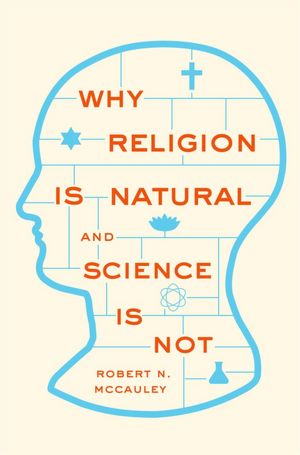Why Religion Is Natural and Science Is Not
/The battle between religion and science, competing methods of knowing ourselves and our world, has been raging for many centuries. Now scientists themselves are looking at cognitive foundations of religion—and arriving at some surprising conclusions.
Over the course of the past two decades, scholars have employed insights gleaned from cognitive science, evolutionary biology, and related disciplines to illuminate the study of religion. In Why Religion is Natural and Science Is Not, Robert N. McCauley, one of the founding fathers of the cognitive science of religion, argues that our minds are better suited to religious belief than to scientific inquiry. Drawing on the latest research and illustrating his argument with commonsense examples, Robert argues that religion has existed for many thousands of years in every society because the kinds of explanations it provides are precisely the kinds that come naturally to human minds. Science, on the other hand, is a much more recent and rare development because it reaches radical conclusions and requires a kind of abstract thinking that only arises consistently under very specific social conditions. Religion makes intuitive sense to us, while science requires a lot of work. Robert then draws out the larger implications of these findings. The naturalness of religion, he suggests, means that science poses no real threat to it, while the unnaturalness of science puts it in a surprisingly precarious position.
Rigorously argued and elegantly written, this provocative book will appeal to anyone interested in the ongoing debate between religion and science, and in the nature and workings of the human mind.
Table of Contents:
Chapter One: Natural Cognition
Chapter Two: Maturational Naturalness
Chapter Three: Unnatural Science
Chapter Four: Natural Religion
Chapter Five: Surprising Consequences
References




